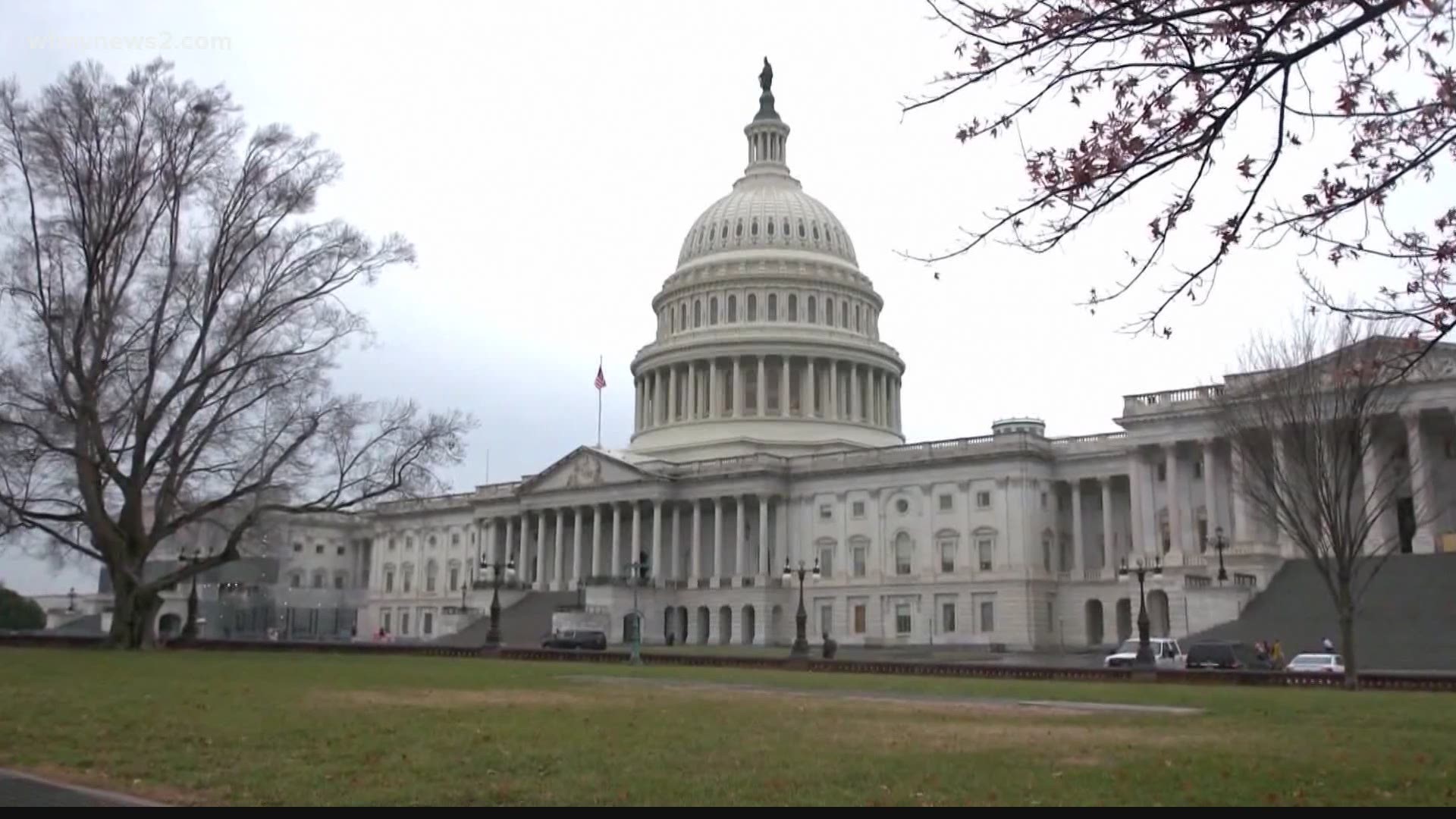NORTH CAROLINA, USA — We're hearing from several lawmakers from North Carolina in Washington on how they plan to vote ahead of election results certification Wednesday.
Congress will meet Wednesday and vote on whether to affirm or reject the Electoral College vote for the 2020 election. It's a decision that has lawmakers in Washington from North Carolina divided. Some have already said how they will vote tomorrow.
Planning to object to electoral votes:
- Rep. Madison Cawthorn (District 11-R)
- Rep. Richard Hudson (District 8-R)
- Rep. David Rouzer (District 7-R)
- Rep. Greg Murphy (District 3-R)
- Rep. Ted Budd (District 13-R)
Planning to certify electoral votes:
- Rep. Alma Adams (District 12-D)
- Rep. Kathy Manning (District 6-D)
- Rep. David Price (District 4-D)
- Sen. Richard Burr (R)
- Rep. GK Butterfield (District 1-D)
- Rep. Deborah Ross (District 2-D)
The Vice President will preside over the vote Wednesday. UNCG political science expert Dr. David Holian specializes in the presidency and Congress.
Holian said tomorrow, the electoral results from each state will be read, and objections to those votes will likely come up.
"If you take a number of Republican members of the house and about a dozen senators at their word they are going to object to the results to certain states," said Holian.
Holian said chambers will then separate and debate for a few hours, ultimately leading to a vote to sustain or reject the objection to the results. Holian said a majority is needed for approval.
"The House, which is controlled by Democrats will not sustain any objection to the electoral vote count, so the idea that somehow tomorrow will resolve itself into anything other than a Joe Biden victory is probability near zero," said Holian.
Holian said despite the objections to Electoral College votes unlikely to change the outcome of the election, the strategy behind it for some could be political.
"I would imagine most of them realize given that Republican and Democratic states across the country and Republican and Democratic judges across the country including a couple of times the supreme court have over and over again said there was no basis any form of election fraud," said Holian.
Holian said many members of Congress are making this move while looking to their next election.
UNCG political science expert Dr. Thom Little agrees.
"Even those that are supporting the effort don’t believe there was this massive fraud but I think they are afraid of Donald Trump. This is Donald Trump's Republican party right now," said Little, "This is a man that got 75 million votes and they're afraid of him. They know his supporters are going to follow him."
But political motivations could prove to be detrimental to the democracy of our country, according to these experts.
"It’s dangerous from the perspective of we're not really a democracy if one person gets to decide, 'Well I didn’t like the election results so, therefore, I’m deciding somebody else gets to win,'" said Holian.
"We are facing the biggest threat to democracy in my generation, in my memory and frankly I can't remember a time our democracy has been in this much peril," said Little.
Both Little and Holian said they fear it could have an impact on the way future elections are handled.
"Have we opened up the door to a future congress voting by simple majority vote that we didn’t like the results the certified results of the election so we're going to just pick the other guy despite what the American people have said?'" said Holian.
"Let's say four years from now that the republican candidate, whether that be Donald Trump or whoever wins the election, Democrats are going to do the same thing. They're going to say, 'Well, we believe there was fraud.' I believe this sets a terrible terrible precedent," said Little.
Despite expected challenges to certifying the Electoral College votes Wednesday, experts said the overturning of election results is unlikely.
President Donald Trump tweeted Tuesday saying the Vice President has the "power to overturn fraudulently chosen electors."
Holian said this is false, and that Vice President Mike Pence has no judicial power in Wednesday's vote.
"Almost certainly a majority of the house saying Joe Biden is president, there's nothing legally at that point that Mike Pence can do," said Holian.

